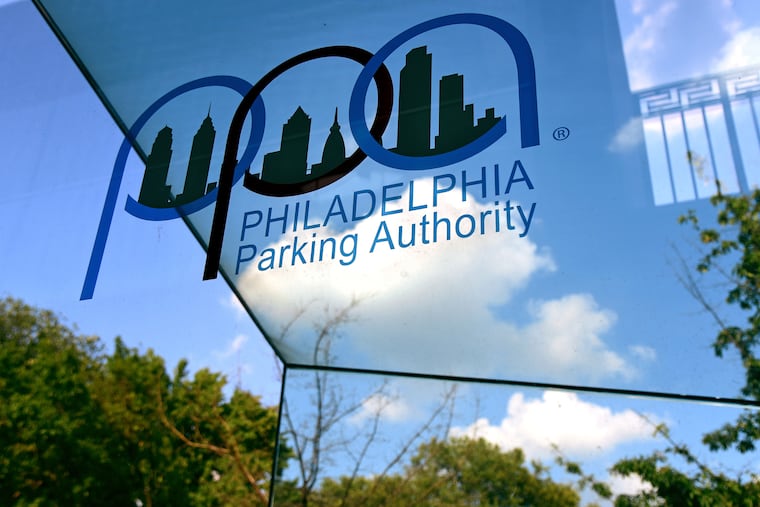Philadelphia Parking Authority asks Pa. to institute protocols for cleaning of ride-share, food delivery vehicles
In a letter sent to Health Secretary Rachel Levine on Wednesday, the PPA suggested required cleaning procedures similar to those that will soon be implemented on a voluntary basis in Philadelphia amid the coronavirus pandemic.

The Philadelphia Parking Authority has asked Pennsylvania to set standards for the cleaning and disinfection of for-hire vehicles as the state looks toward a gradual economic reopening beginning May 8.
These potential standards would encompass transportation vehicles used as taxis, rideshares, limos, and food delivery services.
In a letter sent to Health Secretary Rachel Levine on Wednesday, the PPA suggested required cleaning procedures similar to those that will soon be implemented on a voluntary basis in Philadelphia amid the coronavirus pandemic.
The Parking Authority is considering its own regulations for Philadelphia, and it will start a voluntary “Clean Driver Program” beginning Monday. Rideshare, taxi, limo, and food delivery drivers will be able to pick up cleaning kits and personal protective equipment, and get a professional deep cleaning of their cars at a discounted rate, at the underground parking garage at Independence Mall, PPA Executive Director Scott Petri said Wednesday.
The PPA is not aware of any other U.S. cities that have implemented such a program, which is being run by the mobile parking payment application CurbTrac and other partner companies.
» READ MORE: When no one’s leaving the house, what’s an Uber, Lyft, or taxi driver to do?
Transportation and food delivery services have continued to operate during the coronavirus shutdown. Despite decreases in ridership and concerns for their own health, many rideshare drivers can’t afford to stop driving. Both companies say they have taken steps to protect employees and customers, while food delivery services have also strengthened safety protocols and instituted contactless delivery.
» READ MORE: Can I get the coronavirus from mail or food delivery? The risk is tiny, and you can make it even smaller.
Petri said he hopes the city’s initiative will protect drivers; help support restaurants, some of which are now relying on takeout and delivery; and make customers feel safer.
“If I’m ordering food, I want to know the vehicle was cleaned and somebody used gloves,” Petri said. “We think this voluntary pilot program sends a strong message.”
» READ MORE: Philly’s struggling restaurants are nearing a moment of truth as the coronavirus crisis drags on
Food delivery services, such as Grubhub, supported the program right away, he said, while Uber and Lyft have been contacted about encouraging drivers to participate and perhaps taking on some of the cost.
The professional sanitation will cost about $15 to $20, according to the PPA, while the kits will cost from $12 to $15. Drivers must make an appointment in advance.
Petri said he envisions a similar but mandatory program at the state level, where for-hire drivers would have to fill out a checklist before and after their shift and between trips to indicate compliance with cleaning protocols. If found not to be in compliance by the PPA or the Public Utility Commission in communities outside the city, he said, drivers could be ordered to stop service or face penalties.
But the PPA is open to suggestions from the commonwealth, which could regulate such a system in all 67 counties, he said.
“We’re looking for [Levine’s] expertise and input to see if we hit the right mark,” Petri said.
» HELP US REPORT: Are you a health care worker, medical provider, government worker, patient, frontline worker or other expert? We want to hear from you.
The Health Department did not respond to a question about whether the secretary had any initial thoughts on the suggestion, and instead directed a reporter to the state’s initial guidance on coronavirus-mitigation efforts and best practices for ride-share companies.
Petri suggested officials may want to keep stricter cleanliness protocols in place for the long term.
Before the pandemic, many people would order a pizza or call a rideshare without thinking about infection risks, he said, but that’s changed. After the virus relents, he said, officials should ask: “What are the things we’ve learned that we should continue to enforce? … Our lives have changed.”